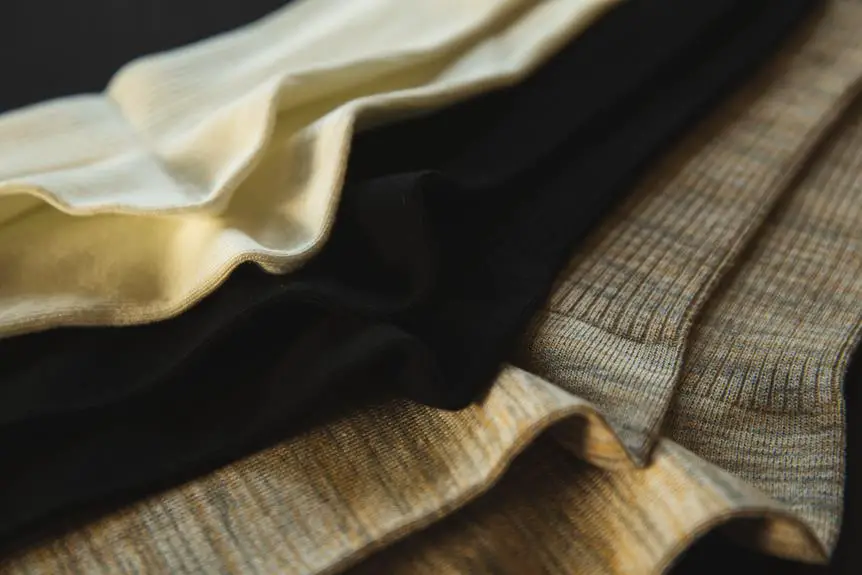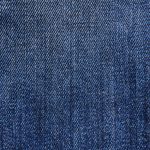So, you've heard about this dual duty thread and you're wondering if it's really the best choice for your fabric projects.
Let's dive in and explore the advantages of using dual duty thread, its versatility in various fabric projects, considerations to keep in mind for your sewing endeavors, and how it compares to other thread types.
By the end, you'll have a clear understanding of whether dual duty thread is the perfect match for your next sewing project.
Let's get started.
Key Takeaways
- Dual Duty Thread is highly durable and long-lasting, making it ideal for projects that will be frequently washed or exposed to wear and tear.
- It offers a wide range of color options, allowing for seamless blending with fabric and enhancing the visual appeal of projects with creative and decorative stitching.
- Dual Duty Thread is versatile and reliable, working well with a variety of fabrics, both lightweight and heavy, eliminating the need to switch between different types of thread.
- When using Dual Duty Thread, it is important to consider factors such as the thread weight matching the fabric weight, the type of stitching required, and the desired overall look of the project.
Advantages of Dual Duty Thread
You will find that dual duty thread offers several advantages for your fabric projects, making it a versatile and reliable choice.
One of the key benefits is its durability. Dual duty thread is designed to withstand the rigors of sewing and the demands of everyday use, ensuring that your stitches hold up over time. This durability is particularly important for items that will be frequently washed or exposed to wear and tear.
Additionally, dual duty thread comes in a wide range of color options. This allows you to seamlessly match the thread to your fabric, creating nearly invisible stitches. The extensive color selection also provides opportunities for creative and decorative stitching, enhancing the visual appeal of your projects.
Versatility in Fabric Projects
When selecting a thread for your fabric projects, consider how dual duty thread's versatility can elevate your sewing experience and the quality of your creations.
Dual duty thread is designed to work well with a variety of fabrics, making it a versatile choice for different types of projects. This thread is suitable for both lightweight and heavy fabrics, offering the flexibility to use it for a wide range of sewing tasks. Its compatibility with different fabric weights ensures that you can rely on it for various sewing projects without needing to switch between different types of thread.
Furthermore, dual duty thread comes in a wide range of color options, allowing you to easily find the perfect match for your fabric. This extensive color selection enables you to seamlessly blend the thread with your fabric, resulting in a professional and polished finish.
Additionally, the thread's durability ensures that your fabric projects aren't only aesthetically pleasing but also long-lasting. With dual duty thread, you can confidently tackle diverse fabric projects, knowing that this versatile thread will meet your sewing needs effectively.
Considerations for Sewing Projects
Consider the fabric's weight and the type of stitching required when selecting the appropriate thread for your sewing projects. Thread weight is an important consideration when choosing the right thread for your project. A heavier fabric will require a thicker thread to ensure strong, durable seams, while lighter weight fabrics will work best with a lighter thread to prevent bulkiness. Additionally, the type of stitching you plan to use will also influence your thread selection. For example, decorative stitching may require a contrasting or decorative thread, while a basic seam may benefit from a more inconspicuous thread color.
When it comes to color selection, it's essential to choose a thread color that complements your fabric. While matching the thread color exactly to the fabric is a safe choice for most projects, using a contrasting color can add a unique touch to your sewing creations. Below is a simple guide to help you consider the appropriate thread weight and color selection for your sewing projects:
| Consideration | Thread Weight |
|---|---|
| Fabric Weight | Lighter fabric: Light thread, Heavier fabric: Thick thread |
| Stitching Type | Decorative stitching: Contrasting thread, Basic seams: Matching thread |
Comparison With Other Thread Types
When comparing thread types for your fabric projects, it's important to assess the qualities of Dual Duty Thread against other options. Here's a comparison to help you make an informed decision:
- Strength and Durability: Dual Duty Thread is known for its exceptional strength and durability, making it suitable for a wide range of sewing projects. When compared to cotton thread, which is prone to breakage, Dual Duty Thread offers superior resilience.
- Material Compatibility: Dual Duty Thread is designed to work well with various fabrics, including cotton, polyester, and blends. Unlike monofilament thread, which may not be suitable for all fabric types, Dual Duty Thread provides versatility in material compatibility.
- Thread Weight Options: Dual Duty Thread comes in different weights, allowing you to choose the most suitable option for your project. This flexibility sets it apart from silk thread, which may not offer as many weight variations.
- Color Selection: Dual Duty Thread offers an extensive range of colors, enabling you to find the perfect match for your fabric. In comparison, nylon thread may have a more limited color selection, making it challenging to find the ideal match for your project.
Considering these factors, Dual Duty Thread stands out as a versatile and reliable option for a wide variety of fabric projects.
Tips for Using Dual Duty Thread
To achieve optimal results when using Dual Duty Thread, there are a few key factors to consider.
First and foremost, ensure that you're threading your needle correctly. Proper threading prevents the thread from snagging and ensures smooth stitching.
Additionally, maintaining the right thread tension is crucial. Adjust the tension according to your fabric and sewing machine specifications. Incorrect thread tension can lead to loose or tight stitches, affecting the overall quality of your project.
When using Dual Duty Thread, it's important to consider the appropriate needle size. The thread's weight and the fabric type should guide your needle selection. A larger needle may cause the thread to break, while a smaller one might create too much friction, leading to thread damage. It's essential to find the right balance.
Experiment with different needle sizes to determine the best fit for your specific project. By paying attention to these tips, you can optimize your use of Dual Duty Thread, ensuring professional-looking results in your fabric projects.
Frequently Asked Questions
Can Dual Duty Thread Be Used for Both Hand Sewing and Machine Sewing Projects?
Yes, dual duty thread is suitable for both hand and machine sewing. It provides the necessary strength for both methods, making it a versatile choice for your fabric projects. It offers durability and reliability for various sewing techniques.
Is Dual Duty Thread Suitable for Sewing Heavy or Thick Fabrics Like Denim or Leather?
Yes, dual duty thread is suitable for sewing heavy or thick fabrics like denim or leather. Its strength and versatility make it a good choice. Alternatives may include heavy-duty or upholstery thread for specific fabric projects.
Can Dual Duty Thread Be Used for Quilting and Embroidery Projects?
Yes, dual duty thread can be used for quilting and embroidery projects. Adjust thread tension for best results. Use embroidery hoops for stability. Consider fabric stabilizers for embroidery and quilting needles for quilting.
Does Dual Duty Thread Come in a Wide Range of Colors, Including Specialty Thread Options Like Metallic or Variegated?
Yes, dual duty thread comes in a wide range of colors, including specialty options like metallic or variegated. Its durability and sewing versatility make it a great choice for various fabric projects.
Are There Any Specific Care Instructions for Dual Duty Thread, Such as Washing or Ironing?
When using Dual Duty Thread, it's important to follow specific care instructions. Washing and ironing should be done according to the fabric's needs. For storage and maintenance, keep the thread in a cool, dry place.
- Fabric Allergies: Symptoms and Hypoallergenic Alternatives - June 5, 2025
- Hypoallergenic Fabrics for Chemical Sensitivity Disorders - June 5, 2025
- Which Fabrics Are Hypoallergenic for Latex Allergies? - June 5, 2025




